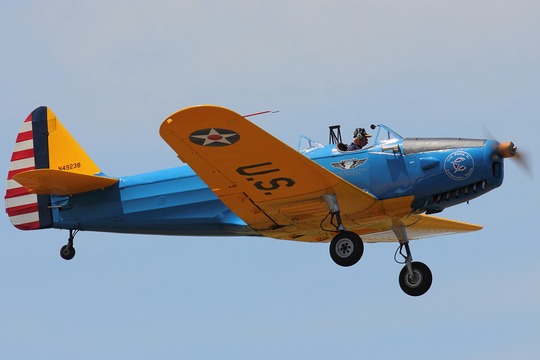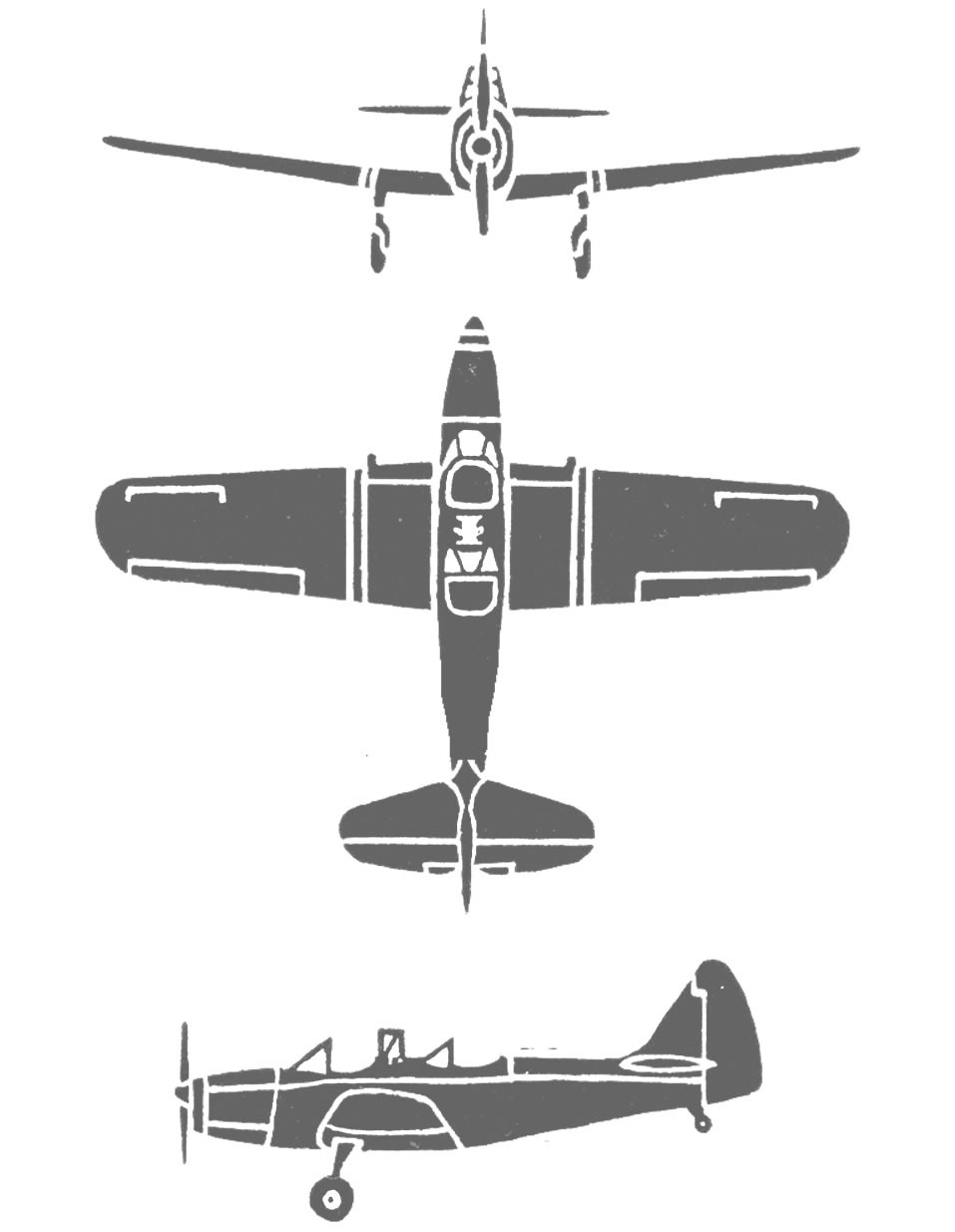PT-19 Coyote Squadron

Description:
Base:
David Campbell Field - Corsicana Municipal Airport, Corsicana, TX
Website:

| PT-19 Specs | |
|---|---|
| Role | Trainer |
| Manufacturer | Fairchild |
| Introduced | 1940 |
| Power | 1 × Ranger L-440-3 6-cyl. inverted air-cooled in-line piston engine, 200 hp |
| Length | 28 ft 0 in |
| Height | 10 ft 6 in |
| Wingspan | 36 ft 0 in |
| Range | 348 nmi |
In 1938, while most military pilots were still receiving their initial training in biplanes, the need was recognized for a new trainer, one that more closely approximated the more advanced aircraft the new pilots would soon be flying. Fairchild Aircraft developed a primary trainer, the Cornell M-62. The simple but rugged construction included a welded steel tube fuselage with a plywood-sheathed center section, outer wing panels, and tail assembly, and the whole covered with fabric. The prototype flew on May 15, 1939, and, later that year, won a competition against 17 other designs for the new Army primary trainer. On September 22, 1939, Fairchild was awarded a contract for an initial order of 270 airplanes. Thus, the Army Air Corps adopted the Fairchild Cornell M-62 as its primary trainer and designated it the PT-19.
Three basic variations of the Fairchild primary trainer were produced: the PT-19, with an open cockpit and Fairchild's Ranger engine with its six inverted inline cylinders; the PT-23, with a Continental radial engine; and the PT-26, the Canadian version with a sliding canopy and cockpit heating system. All three versions used the same basic airframe. Other variations of the aircraft were designated by letters. For example, the PT-19A replaced the PT-19s 175-hp Ranger engine with a 200-hp version; the PT-19B and PT-23A featured a collapsible hood for instrument training.
When Japan bombed Pearl Harbor on December 7, 1941, demand for trained military pilots skyrocketed. Fairchild Aircraft (FA) sought subcontractors to assist in meeting the demand for PT-19s, and five subcontractors were signed up: three U.S. companies (Howard Aircraft, St. Louis Aircraft, and Aeronca), a Canadian company (Fleet Aircraft), and a Brazilian company (Fabrica do Galeao). More than 6,000 Fairchild primary trainers were built. Pilots from the US, Canada, Great Britain, France, Norway, Mexico, Brazil, Chile, Colombia, Ecuador, Peru, Uruguay, Rhodesia, and India learned to fly in some version of the airplane. About 100 of these airplanes remain in civil aviation.
A PT-19 came into the Army inventory in 1942. (By this time, the service was known as the US Army Air Forces.) It was assigned the tail number N49238. It’s not known where the aircraft was stationed for flight training duty but, in April, 1945, the Defense Plant Corporation sold it to Hugh Bowman of Belt, MT, for $875. In August, 1977, Bowman sold the aircraft to Leonard Bonker of Albia, IA. In March, 1980, Bonker sold it to Boulder Aviation of Boulder, CO. In April, 1987, Boulder Aviation sold the plane to Colvin A/C, Inc., of Big Cabin, OK, and, in September, Colvin A/C sold it to Richard Chamberlain of Berkeley, MO. Records show that, in January, 2000, Ben Acock, representing a few members of the Coyote Squadron, purchased the airplane from the estate of R.W. Chamberlain. In February, 2001, the plane was transferred to the Navarro County Heritage Aircraft Association of Corsicana, TX, the precursor to the Corsicana Field Aviation Heritage Foundation, and the plane was transferred to the latter organization in April, 2002. In June, 2005, title to the plane was transferred to the American Airpower Heritage Flying Museum (Commemorative Air Force) of Midland, TX, but it actually remains with the Coyote Squadron.

